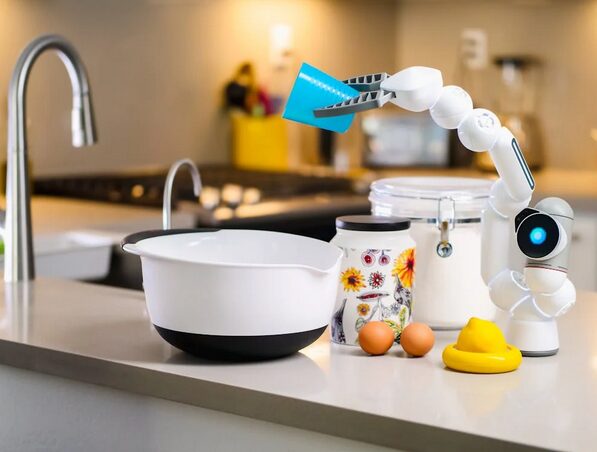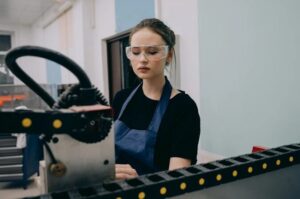The world is changing fast, and so are our workplaces. As artificial intelligence continues to evolve, many people wonder about its impact on jobs. Will robots take over? Or can humans and machines work together in harmony? Imagine a future where AI enhances human capabilities rather than replacing them entirely.
The conversation around robotics often feels like a tug-of-war between fear of job loss and excitement for innovation. It’s time to explore this dynamic landscape. From high-risk industries benefiting from robotic intervention to the emerging need for soft skills, let’s find out how the rise of AI might reshape careers as we know them.
Human-AI Collaboration

Human-AI collaboration is redefining the workplace. Instead of viewing AI as a competitor, many industries are embracing it as an ally. Take healthcare, for instance. Doctors now use AI tools to analyze patient data quickly and accurately. This partnership allows physicians to focus on what they do best: treating patients with empathy and care. In creative fields, artists collaborate with AI to generate new ideas or enhance their work. Musicians can experiment with AI-generated melodies, pushing the boundaries of creativity while still retaining their unique touch. As automation handles repetitive tasks, employees have more time for strategic thinking and problem-solving.
Robots in High-Risk Jobs
 High-risk jobs often come with significant dangers. Think of construction sites, mines, or hazardous material handling. These environments pose threats to human workers that can lead to serious injuries or worse. Enter robots. They are designed to handle perilous tasks without the fear of injury. For instance, drones survey disaster zones where humans might hesitate to tread. Robotic arms manage toxic substances in labs, ensuring safety while maintaining efficiency. The precision and strength of robots make them ideal for heavy lifting and intricate procedures that demand exactitude beyond human capabilities.
High-risk jobs often come with significant dangers. Think of construction sites, mines, or hazardous material handling. These environments pose threats to human workers that can lead to serious injuries or worse. Enter robots. They are designed to handle perilous tasks without the fear of injury. For instance, drones survey disaster zones where humans might hesitate to tread. Robotic arms manage toxic substances in labs, ensuring safety while maintaining efficiency. The precision and strength of robots make them ideal for heavy lifting and intricate procedures that demand exactitude beyond human capabilities.
Soft Skills Matter More
As technology advances, the importance of soft skills is becoming increasingly clear. While robots excel at tasks that require precision and speed, they lack emotional intelligence and creativity. Skills like empathy, teamwork, and communication will be vital in the workplace. Humans possess the unique ability to understand nuances in social interactions, something AI can’t replicate. In sectors where collaboration is key, those who can connect with others will shine. Creativity also plays a crucial role in problem-solving—an area where machines simply follow algorithms. Employers are now prioritizing these human-centric abilities over technical skills alone. As automation takes on repetitive tasks, workers adept at navigating complex interpersonal dynamics will stand out.
New AI-Driven Careers

As artificial intelligence continues to evolve, it’s creating exciting new career paths. Roles like AI ethicists are becoming essential. These professionals ensure that technology aligns with human values and ethical standards. Data scientists also remain in high demand. They analyze vast amounts of data generated by AI systems, turning raw numbers into actionable insights for businesses. Another emerging field is robotic process automation specialists. Companies need experts who can design and implement automated workflows to increase efficiency.
The evolution of robotics and artificial intelligence is reshaping our work landscape. Roles focused on managing AI systems or working alongside them will require fresh skill sets that blend technical know-how with interpersonal abilities. Change may seem daunting but embracing this transformation opens doors to innovative possibilities.




